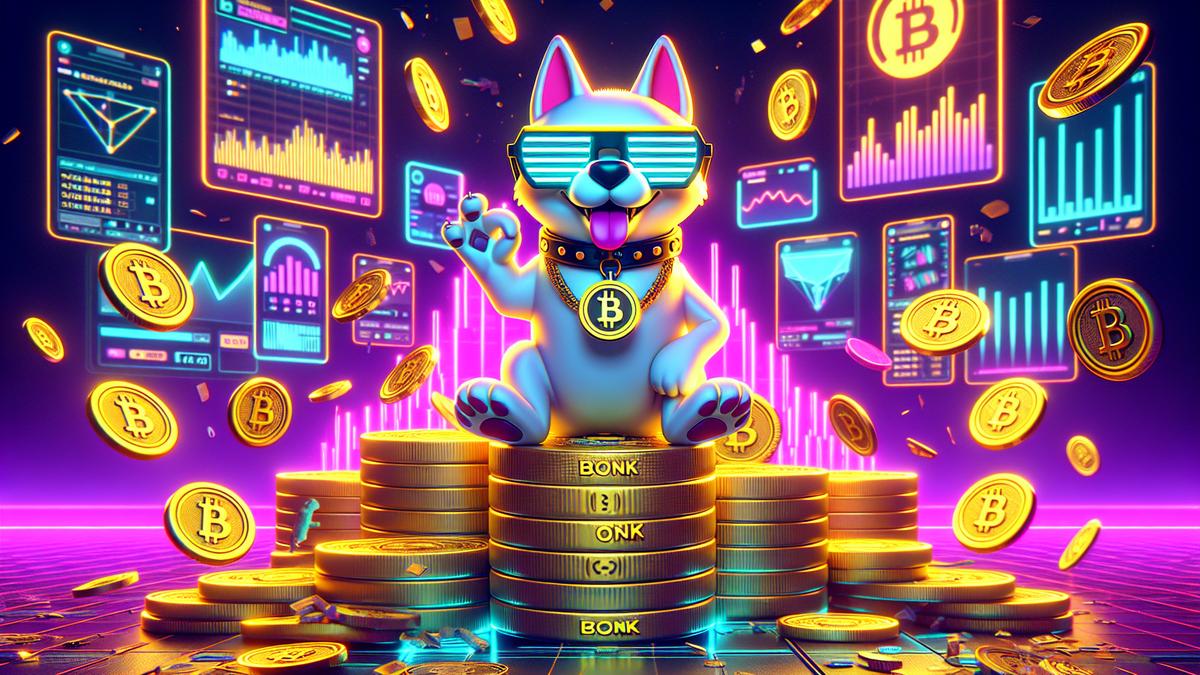Table of Contents
- The Situation
- TL;DR – Our Final Verdict
- Useful Links
- The Numbers Don’t Lie
- The Opportunity
- The Risks
- What People Are Saying
- How We Analyzed This
- Our Final Take
- Legal Disclaimer
The Situation
It’s the summer of 2025, and crypto enthusiasts are flocking to a meme token that’s making ripples on the Solana blockchain. Meet Bonk (BONK), the token that’s been climbing the meme ladder with listings on heavyweight exchanges like Binance and Coinbase. With the social chatter ramping up and trading volumes soaring, is it the next big thing or a bubble waiting to burst? Here’s what you need to know.
TL;DR – Our Final Verdict
Bonk presents an intriguing yet risky proposition. If you’re thinking of diving in, proceed with both eyes open. The ample trading volumes and extensive exchange listings make it accessible, but the high concentration of supply and mutable metadata are big caution signs. This is one for the adventurous investor willing to navigate the volatility and speculation.
Useful Links
- Solana Explorer
- Website
- Discord
- Telegram
- Binance
- MEXC
- Coinbase Exchange
- Bybit
- Zoomex
- P2B
- OKX
- LBank
- CoinW
The Numbers Don’t Lie
Let’s deal with the quantitative nitty-gritty. Bonk has an eyebrow-raising total supply of over 88 trillion tokens. Currently, 18.13% of this supply rests in the hands of the top five wallets, indicating a notable concentration risk. Daily trading activity is bustling, with volume hitting 9.16% of its market cap—indicative of high engagement but also potential manipulative behavior lurking beneath the surface. Add to this a liquidity pool making up only 0.12% of the market cap, and you’re standing on thin ice.
The Opportunity
Even with cautionary flags fluttering, Bonk can’t be ignored by a savvy trader. Its listings on prime exchanges like Binance and Coinbase open the door wide for retail investor access. Add in its substantial social following of over 52,000 on Twitter and you have the makings of a token that thrives on meme culture. This buzz could spark significant price movements if the token taps further into the viral meme vein.
The Risks
You’ve heard some of these warning bells already, but here’s the full picture of what could go sideways.
- Concentration Risk: A handful of wallets control a whopping portion of the supply, suggesting both influence and manipulation risks.
- Inflationary Supply: With an absurdly high total supply, inflationary pressure looms.
- Volatile Liquidity: A thin liquidity pool paired with ample trading volume sets the stage for sharp price swings.
- Mutable Metadata: Changes can occur in the token’s makeup, raising transparency concerns.
- Market Cap vs. Reality: A striking $2.5 billion market cap feels inflated unless community and value see a massive shift.
What People Are Saying
The community voice is anything but silent. Bonk’s growing Twitter hive—with over 52,000 followers—is evidence of its burgeoning popularity, creating network effects that could amplify market presence. However, sparse communication from the team casts a shadow over sustained community engagement, suggesting possible risks of sudden hype evaporation.
How We Analyzed This
We put Bonk through our 5-AI agent analysis system. Each specialist AI focused on different aspects—quantitative data, opportunities, risks, and social sentiment—before our final AI synthesized everything into this verdict. This multi-faceted approach ensures a comprehensive examination from every angle.
Our Final Take
Bonk is a rollercoaster of a token—one that promises thrills and chills in equal measure. Its hefty trading volumes, broad exchange listings, and social buzz make it a compelling play for risk-takers. But caveats abound with a high concentration in top wallets, mutable metadata risks, and liquidity concerns. If you’re betting on Bonk, know it’s a ride with few seat belts.
Legal Disclaimer
This article is for informational purposes only and should not be considered financial advice. Cryptocurrency investments are highly speculative and can be risky. Always conduct your own research (DYOR) and consult with a financial advisor before making investment decisions.

